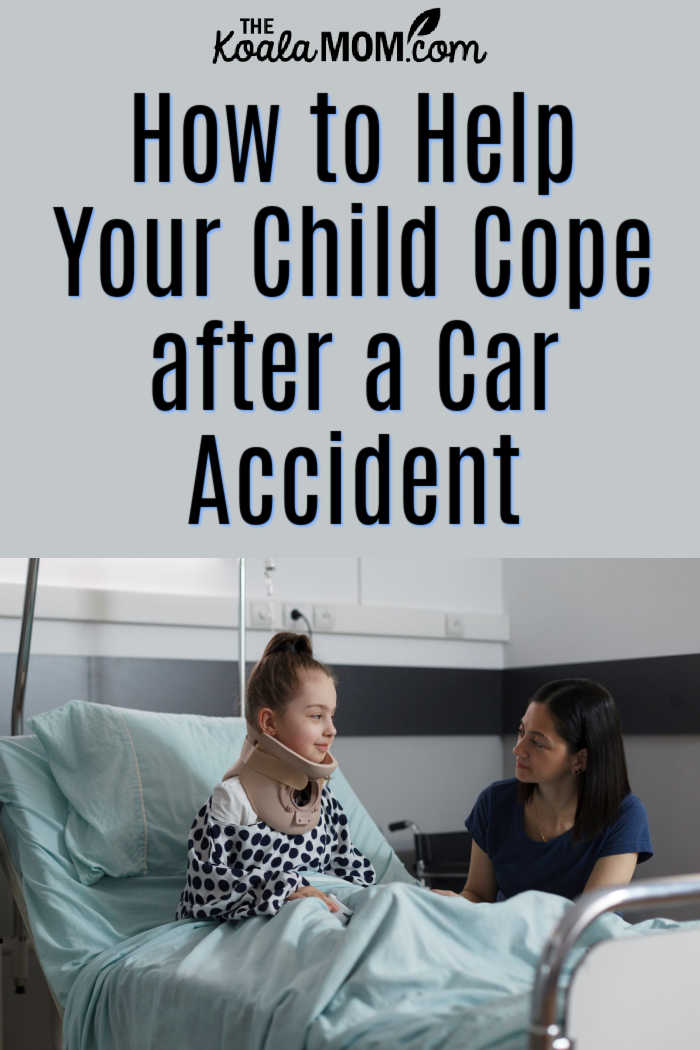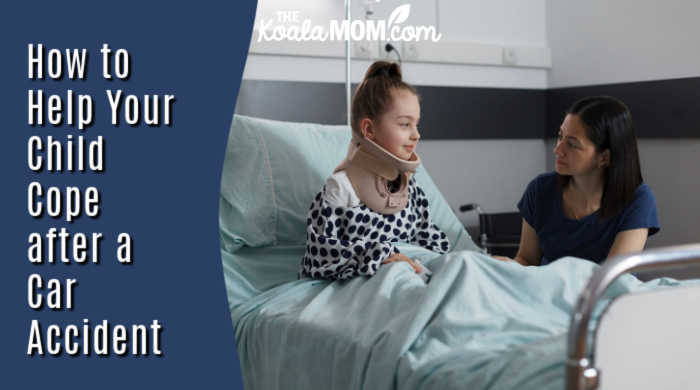Being involved in a car accident can be traumatic for anyone and especially for a child. A child’s mind and emotional strength are not as developed as a grown-up’s. It doesn’t take much to frighten or disrupt their usual way of doing things. The first thing you can do as a parent for your child is to reassure them that everything is going to be okay and immediately check for any injuries, both seen and the unseen.
Accidents expose children to unfamiliar situations that make them uncomfortable and may also cause fear and anxiety. Depending on the accident’s severity, there may also be surgery or other painful and scary medical treatments following the accident. They may also be traumatized by seeing someone in the same car die, affecting their emotional health.
Car accidents happen for several reasons, including impaired driving, poor roads condition, and cars that are not roadworthy. While helping your child cope after an accident, it’s important to pursue justice by following the state’s laws and hiring a car accident attorney. Following the example of a New Jersey-based car accident attorney, there’s the hope of obtaining legal help.
This article will show how you can help your child cope after a car accident. Read on to learn.

Talk About The Accident
A child will only speak once you make them feel comfortable to be vulnerable without interrogating them about the incident. You should provide a safe space for your child to speak up and share what they recall about the accident. Allow decompression when your child cries or speaks erratically. It’s a usual way of expressing themselves and getting stuff off their chest.
Take time to also talk to them about the accident by being honest and informing them exactly what happened. Answer their questions to the best of your ability while sticking to the facts. Talking about the accident and explaining what went wrong will help them understand why it happened, which may, in turn, help prevent future accidents from happening.
Take Care of Yourself
Your child undergoing an accident is also traumatizing to you and may lead to emotional distress. You should be emotionally in good shape to help your child cope after an accident. You can take care of yourself by reaching out to a friend or therapist who can speak to your child as you work on your emotional well-being.
Talking to a therapist about the accident can help you process your own emotions and trauma, and also understand your child’s reactions to the accident. Your therapist can likely give you tips for discussing the accident with your child and helping them to work through the emotions. Depending on your child’s personality and the severity of the accident, you may also want to find a child or play therapist to work with your child.
Engage In Activities Together With Your Child
Spend time with your child and look for activities you can engage in together, like going for walks, riding bicycles, going to or watching movies, and playing board games, among others. It builds your child’s emotional stability and gives them peace of mind to focus on activities they enjoy. It also gets them away from the dark space of the car accident.
A car accident could cause your child to fear that they will lose you or another significant adult in their lives. Children have a great need for security, so if that need is threatened by the accident, they may exhibit more clingy behaviours following the accident. Spending more time with them and meeting their need for connection can help meet their need for security and heal following the accident.
Maintain Your Normal Schedule
One of the reasons it’s crucial to maintain your regular schedule of activities is that it gives your child comfort to know that the car accident is in the past and life has to go on. Children thrive on a familiar routine as they know what to expect. It allows your child to go back to school and participate in extracurricular activities, among other things they do regularly. Reassure them that each day will be better and do what you can to minimize disruptions after the accident.
Move With Your Child’s Pace
Instead of pushing or pressuring your child to talk about the accident, give them a chance to express any thoughts, feelings, and emotions they have when they’re ready. It creates a platform to display their vulnerability when they are in the right mind. Initiate conversations that lead to inquiring about their behavior after the accident.
Ask questions like, “I’ve noticed that; lately, you’re doing less of the things that you liked doing. Is there a particular reason for this?” It shows interest and concern for your child’s well-being.

Car accidents are traumatic events to adults and children; however, children are more affected, especially if they don’t find a way to cope. As a parent, you play a vital role in helping your child cope after an accident by how you carry yourself.
You’re your child’s role model; therefore, braving the incident is to help them and gradually put the matter behind them. Assure and encourage your child that they’ll overcome every fear and manage to have the incident behind them.

No Responses Yet